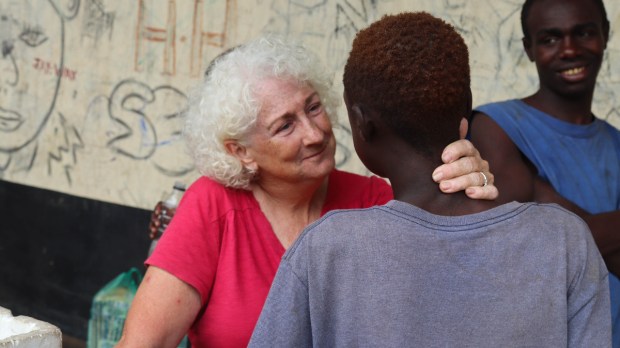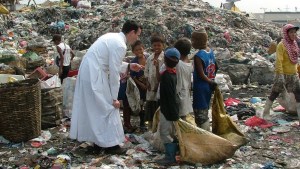Today most people call Carol McBrady “Mama Carol,” as she cares for hundreds of Zambian children with great love and dedication.
McBrady is the founder of Action for Children Zambia, a volunteer organization that saves the lives of children living in the streets.
But her missionary story began over 20 years ago in Minnesota, where she grew up the sixth of eight children in a large Irish Catholic family.
All her life, McBrady longed for children: “Truly all I wanted to be was a mother, not a wife,” she recalled.
But after two miscarriages and a stillbirth, she received the devastating news that she was unable to have children.
“I couldn’t imagine how God could give me such a strong will for motherhood, yet no children,” she said.
Fortunately God’s plans are bigger and better than ours. She said, “I had no idea then what God had in store for me as I am now mother to hundreds of children.”
She made her first trip to Africa in 2002. What she saw there changed her forever.
McBrady witnessed thousands of homeless children living in the streets, sewage tunnels, and rubbish piles of Zambia. She felt a strong call to dedicate her life to them.
That was the beginning of Action for Children Zambia. She founded the non-profit organization as a way to streamline donor funds into the lives of children, so she could make a permanent difference in their lives.
“I saw so much corruption and misuse of funds that I was just in shock,” she remembered. “So much of the money people give never ends up where the giver intended. The money we give does not help change children’s lives and the ones getting hurt are the voiceless children.”
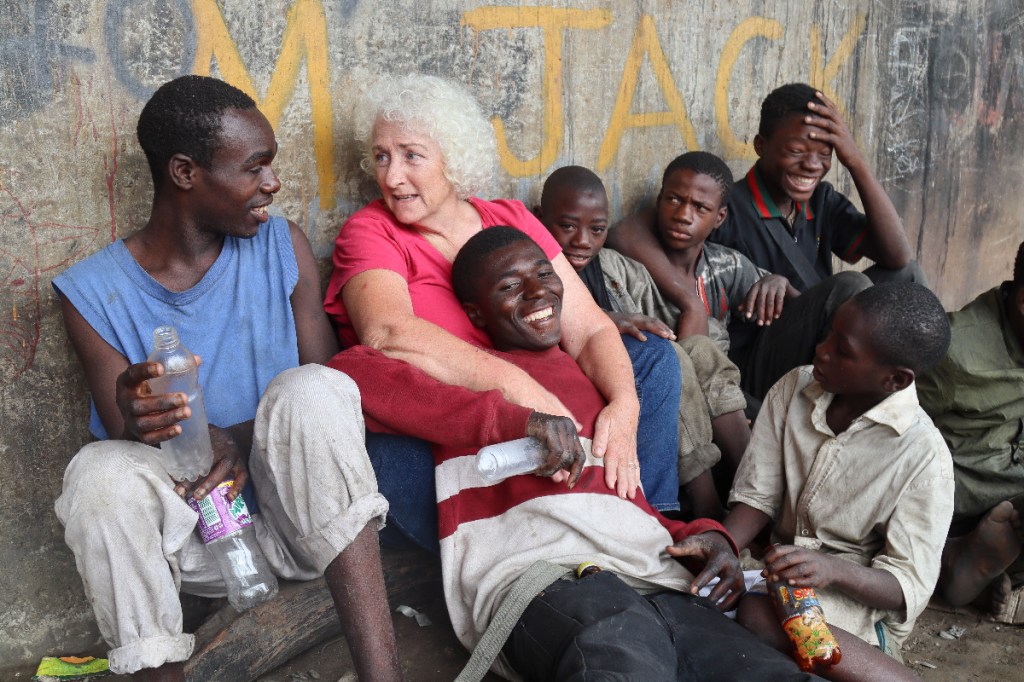
What sets her work apart
Action for Children Zambia (AFCZ) is unique for two reasons:
1Family life for the children
When a child arrives at Salvation Home, the first stop in the AFCZ program, every effort is made to reunite them with their parents or relatives. If there is a family member who can care for the child, they are taken home while AFCZ continues to pay for their medical and educational needs.
If relatives are not found who are able to care for the child, they are moved into one of the permanent homes at Kulanga Bana, AFCZ’s rural farm. There they continue to live as a family with eight other children and Zambian house parents. They go to school and live as any other family in the community.
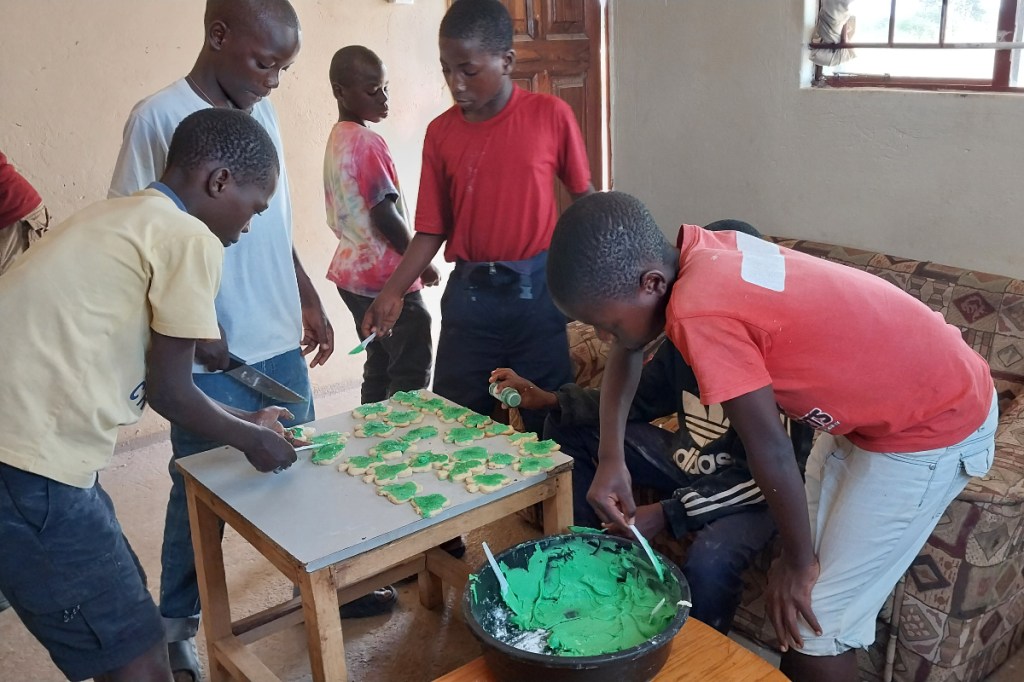
“At home, we focus on daily living skills and what the child needs to live a successful life independently,” McBrady said. Children also receive tutoring and other support services to complete school, and eventually go on to high school or a trade school.
2Connection to their communities
AFCZ is dedicated to keeping the children connected to and involved in their communities in Zambia.
“We believe that in order for a child to successfully transition into leading a productive life, he or she must have roots in the communities they will be returning to,” she said.
All staff are Zambian as we strive to make sure every child knows the norms and value of their indigenous culture, how to achieve success within their culture and how to make a positive difference in their communities and country … The majority of the staff are young adults that have grown up with us.

Caring for children in death
Another heartbreaking and very important part of McBrady’s work is caring for street children in danger of death, even burying them if necessary. She said,
We have been given permission by the government to take any homeless child that is deemed to be in a crisis. That means when a child in the streets is injured, assaulted, overdoses, hit by a car, beaten by police or even dies, we are the ones that receive the call for help. We go in and take the child to the hospital, and stay with them providing all they need until we find their relatives to take over, or the child is discharged. If a child dies, we take the body to the mortuary and assure the proper paperwork is done. Then we search for the relatives of the deceased. If we find family, we help them bury their child. If we don’t find relatives, I go with the police to get a next of kin order and we bury the child ourselves.
After 20 years running AFCZ, McBrady has helped more than 300 children to come off the streets and go onto successful lives as young adults who contribute to the growth and development of their church, their community, and their country.
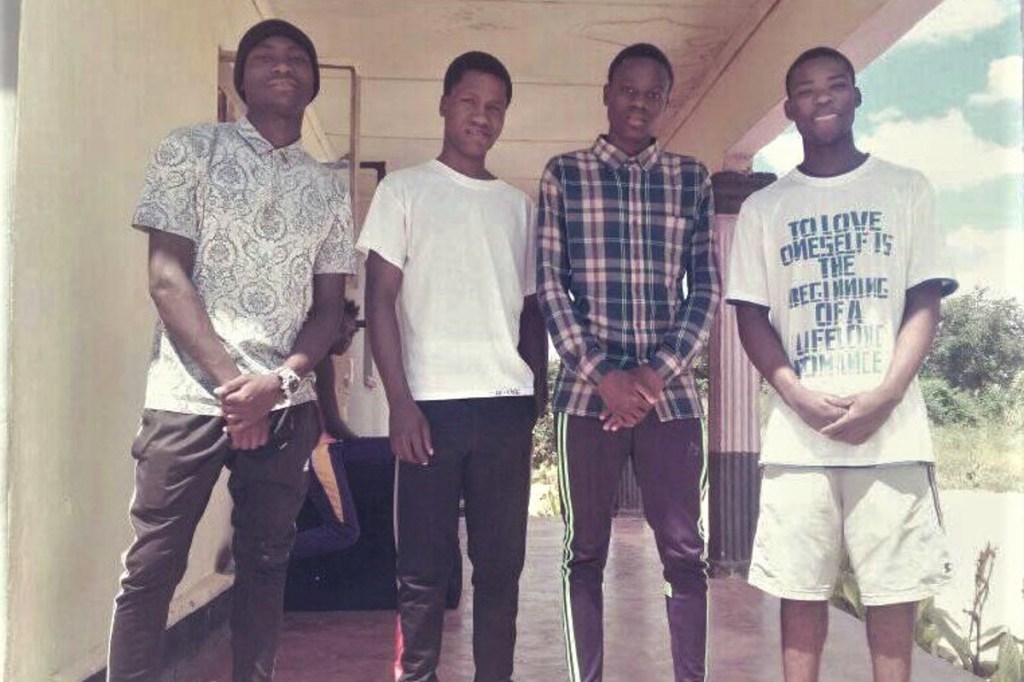
But perhaps the most moving testimony to her work happened when she was in the streets talking to a girl who had run away and returned to prostitution. She said,
There was a new young man there who had not met me yet and he was very drunk and agitated. He broke a bottle on the cement wall and came at me saying things like, “Who do you think you are, taking our girls? Me, I paid for her!”
In seconds, that young man was surrounded by about 10 other young men, taken down, his weapon removed, and they were shouting at him to stop it, I was their mother. Then one of the guys shouted at him, “Who do you think is going to bury you when you die?” I left that night, knowing I was about the safest woman in Zambia, thanking God for the opportunity to be their mother and take care of them in death.
How you can help
If you would like to support AFCZ’s work, you can donate, host a fundraising event, volunteer, or just stay in touch here. As a small, private organization, AFCZ receives no funding from the Church, the government or larger organizations.
“Without donations, we cannot do our work,” she said. “We do our very best to assure that the funds are used as the donor intends and everything goes toward making a permanent difference in the lives of street children and ending the cycle of poverty our children were born into.”
Right now, AFCZ is building a house for older youth and those who are medically fragile. “It’s near the hospital and the school and solves many issues for us,” she said. “We can’t wait to get it done.”
And of course, your prayers are a great help to AFCZ. “It’s very important to pray for these most needy and vulnerable of children and spread the word,” she said. “These are God’s children.”
